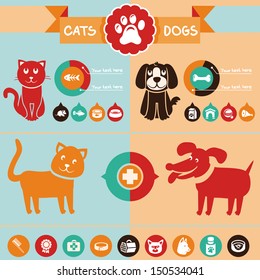Dog Daycare Impact On Home Behavior
Dog Daycare Impact On Home Behavior
Blog Article
Can Dog Childcare Reason Disease?
Dogs in daycare obtain great deals of exercise, socialization with various other pet dogs and distinct experiences. This can be particularly helpful for pups and pet dogs with behavioral issues.
There are a number of lawful factors to consider you need to take into consideration when beginning a dog childcare business. These include the structure of your service and compliance with federal government guidelines.
1. Pooch Distemper
Canine distemper is spread out through direct contact with the bodily fluids and waste of an infected pet dog, yet it can also be transmitted through common water and food bowls or via air-borne beads. This highly infectious disease is most hazardous for pups, yet it can impact dogs of any age and is fatal for many if left without treatment.
First signs and symptoms of canine distemper often mimic a common cold, including drippy eyes and nose with watery or pus-like discharge. As the illness advances, a pet dog will certainly create high temperature, coughing, lowered cravings, throwing up and looseness of the bowels. The infection can additionally strike the nerves, resulting in seizures, shivering and partial or complete paralysis.
Reliable daycares reduce exposure to infection by requiring vaccinations, regular health examinations and adhere to rigorous health methods. If your dog appears excessively exhausted or limping, a day of rest may help him recover, but you should stay clear of taking him back to childcare till these signs and symptoms improve.
2. Kennel Coughing
Kennel cough, also known as infectious canine tracheobronchitis or Bordetella, is a very transmittable viral or microbial illness that impacts the breathing tract. It's typically transferred through the exchange of saliva or air beads that an ill canine exhales. Social dogs go to greater danger for infection because of their frequent interaction with each other, such as when they play, share food or water, smell one another or simply meet in a jampacked setting like a pet dog park or daycare.
The most usual sign of kennel cough is a persistent and strong coughing that sounds like something stuck in the throat or retching. Often, pets will cough up foamy white phlegm. If left unattended, a pet dog can establish pneumonia and be at significant danger for life.
A trusted daycare center must have strict cleaning and hygiene procedures, sanitize all playthings, food and water bowls on a regular basis, and be open regarding their vaccination plans. Maintaining your canine up to day on their vaccinations, specifically for bordetella and canine flu, will considerably reduce their opportunities of getting the disease.
3. Parvovirus
Canine parvovirus, or parvo, is a highly transmittable viral disease that can be deadly for pups and young adult dogs with inadequate body immune systems. It's most commonly spread out by direct contact with contaminated pet dog feces-- which can occur when dogs smell, lick, or taste contaminated feces-- and indirectly from polluted people, things, or atmospheres (like kennels, brushing spaces and lawns). Pups and canines without full vaccination histories are particularly susceptible to parvo.
The infection is incredibly resistant, making it through in the environment for as much as nine years, and can conveniently be transferred in between dogs by call through feces or on footwear, clothing, and bed linens contaminated with parvovirus. Otherwise treated quickly with IV fluids, electrolyte equilibrium, vomiting control drugs and prescription antibiotics to stop additional microbial infections, a canine will swiftly dehydrate and create severe looseness of the bowels, which leads to shock and blood poisoning. Parvo is difficult to treat once a canine has actually become ill, yet with appropriate vet treatment, numerous pups do survive this health problem.
4. Canine Influenza
Pooch influenza infection is very infectious and spreads via direct get in touch with, sharing food and water bowls, licking or nuzzling various other canines, via airborne beads, and via polluted surface areas. Vaccination is effective in lowering the risk of infection and break outs.
Most impacted pet dogs dog boarding weekly rates near me develop a moderate respiratory system infection with a cough that lasts 1-3 weeks. They may additionally have nasal and ocular discharge, sneezing, and lethargy. Several of the most severe instances result in pneumonia and a high fever.
If your pet dog shows any of these signs, do not bring them back to childcare till they are healthy. If your pet dog is revealing signs of extreme exhaustion or limping, speak with your veterinarian right away and make certain they get on good health supplements to help develop their resistance. A veterinarian will examine your pet for symptoms of the flu by taking an example from the nose or throat, and blood examinations can be done to confirm.